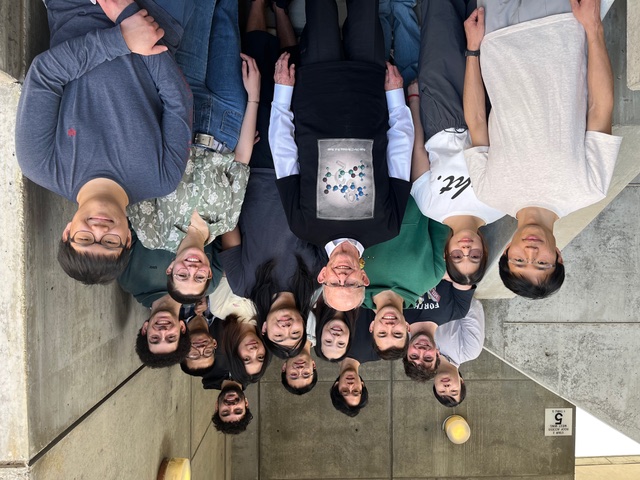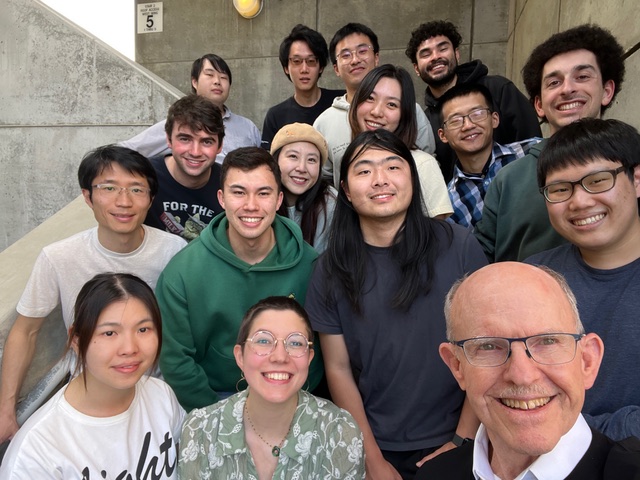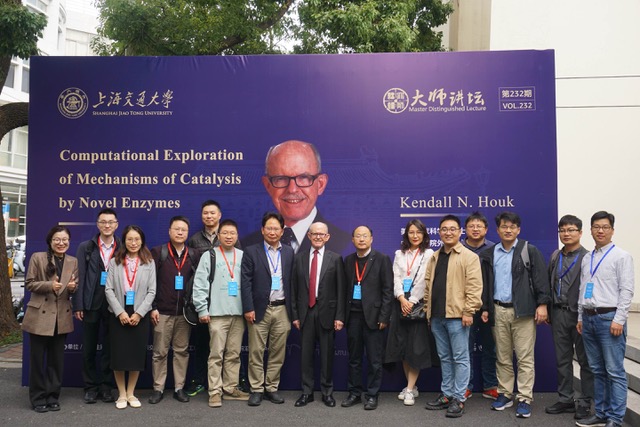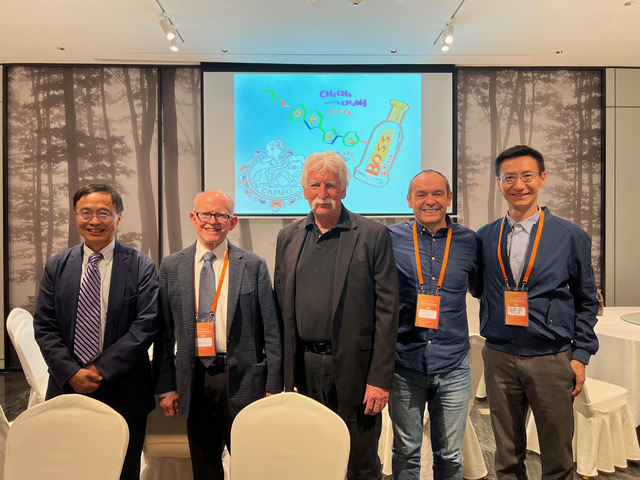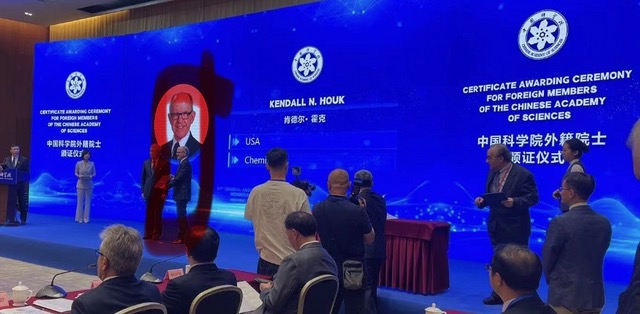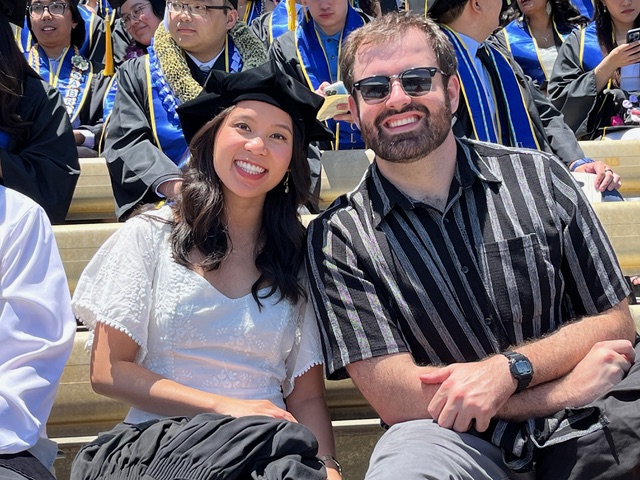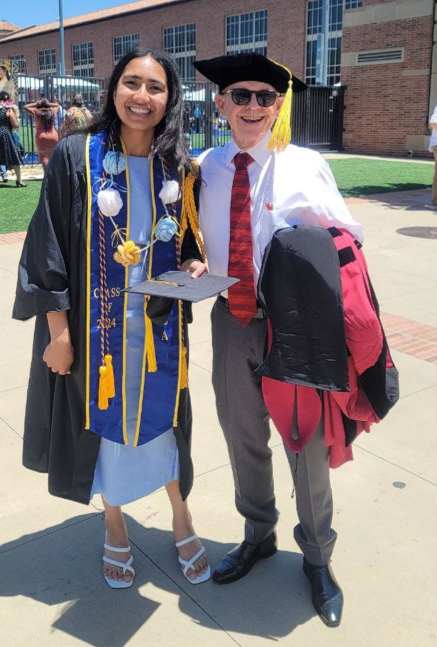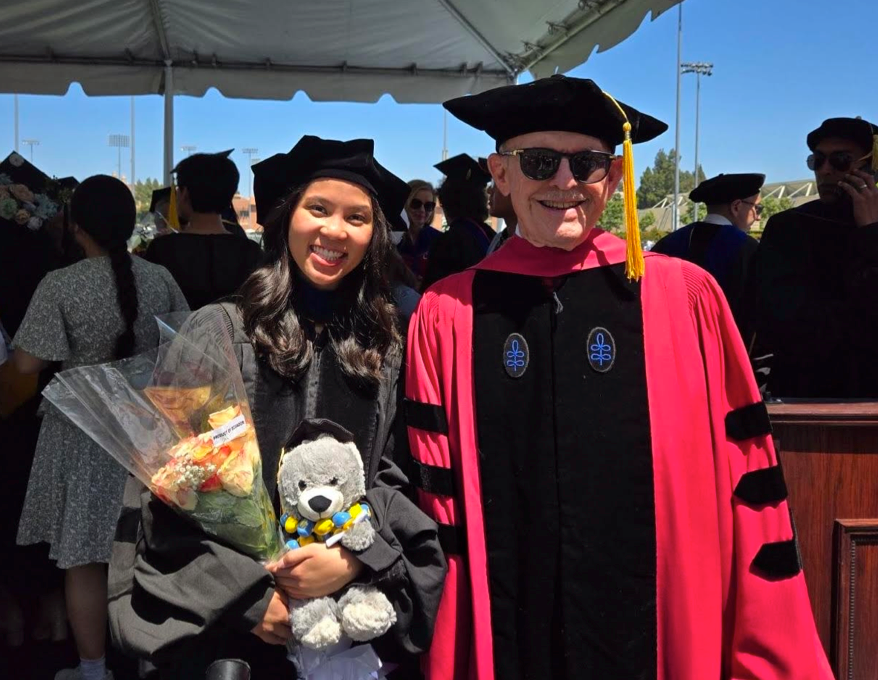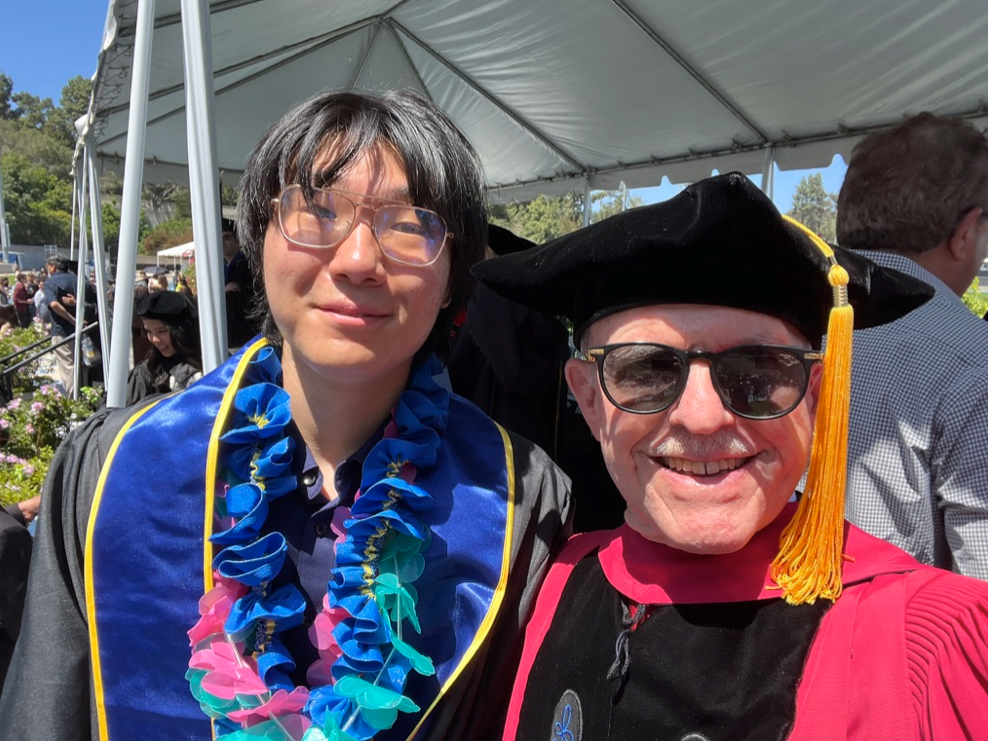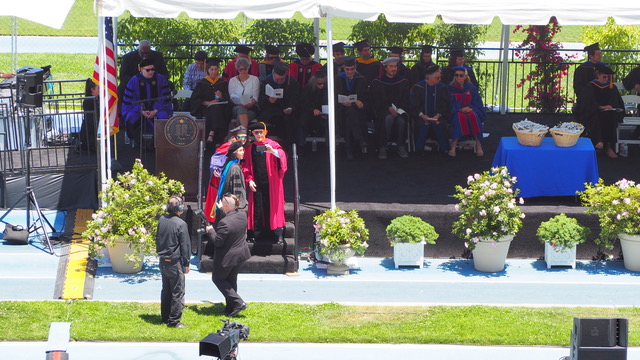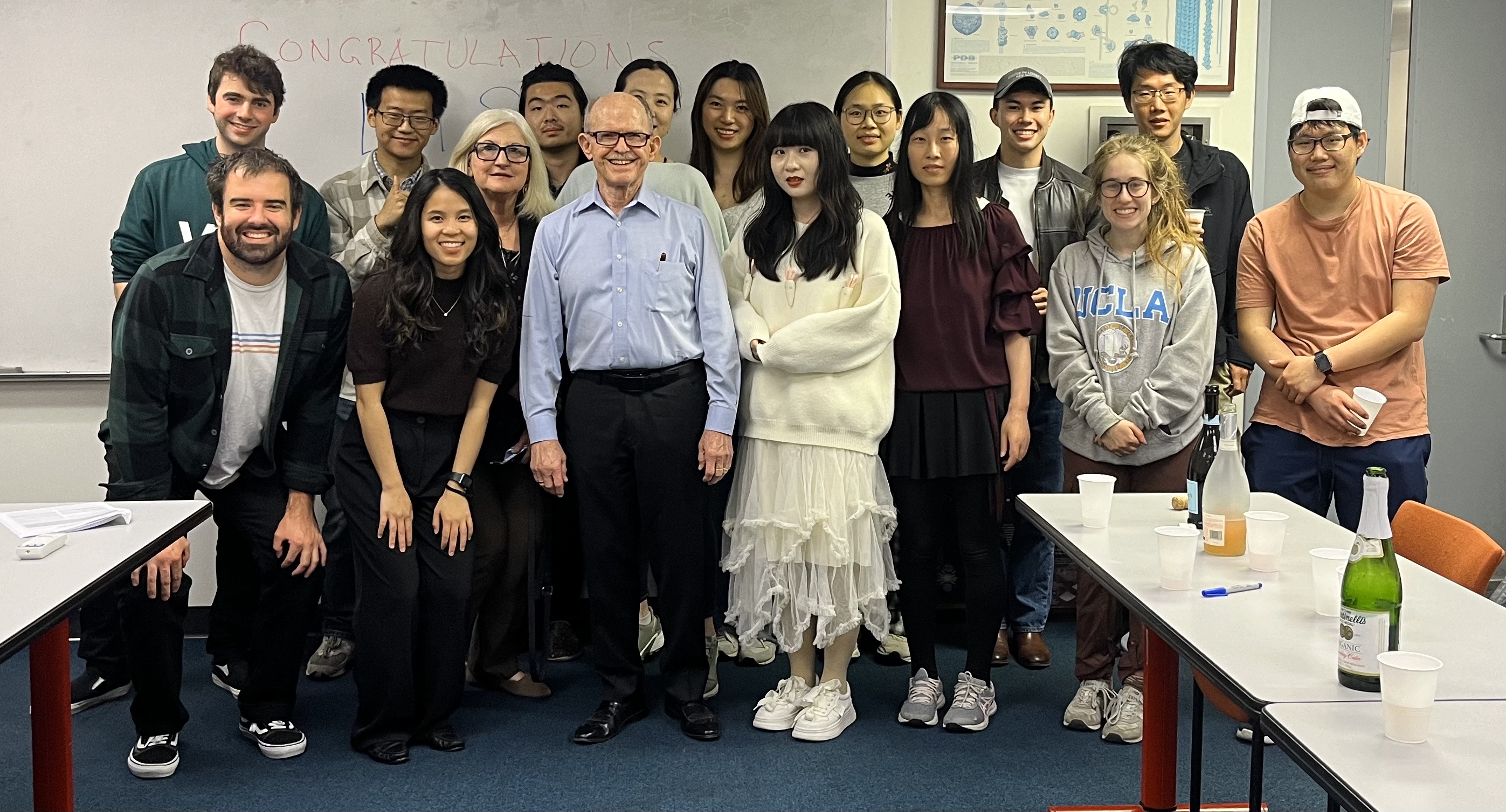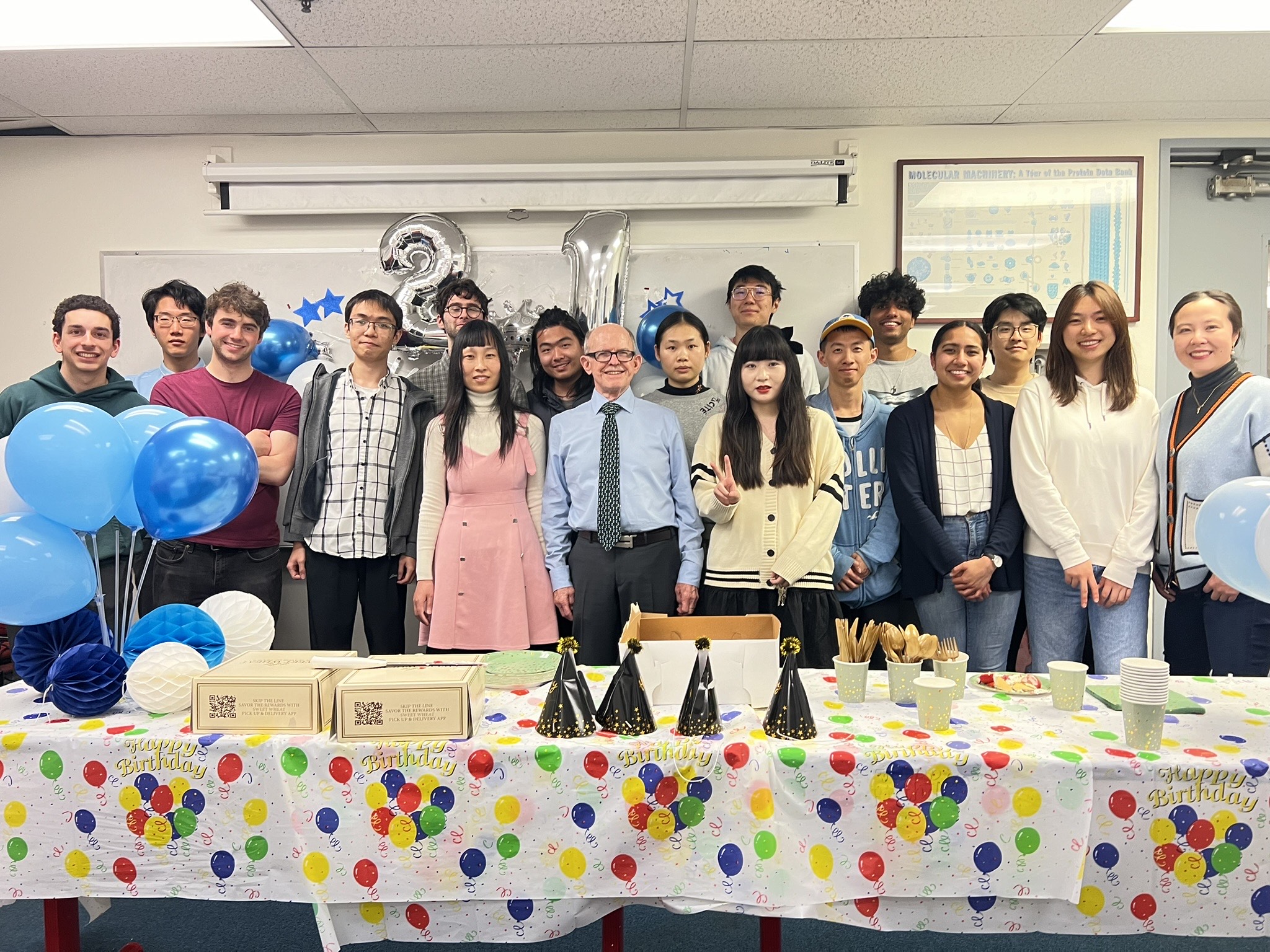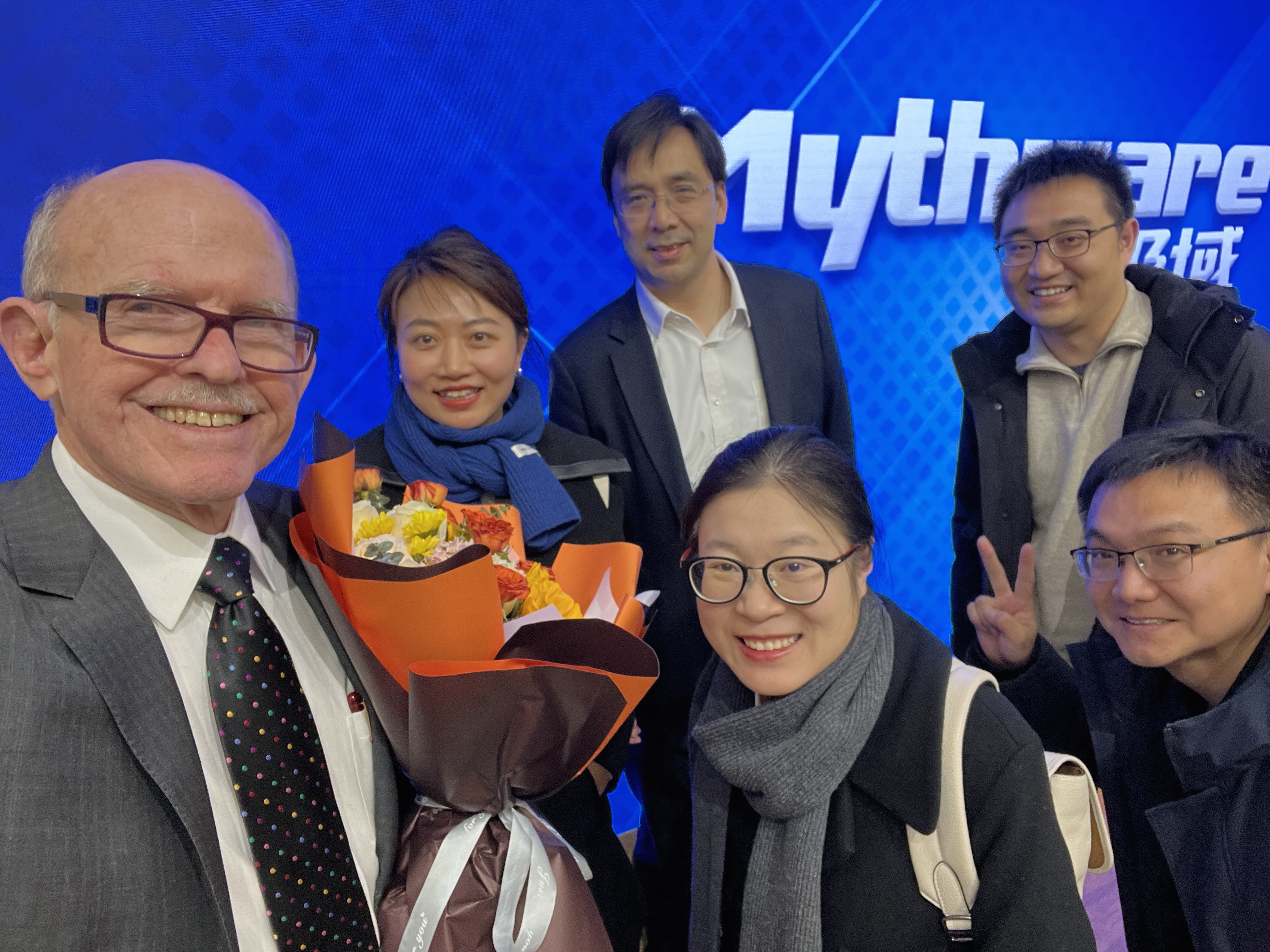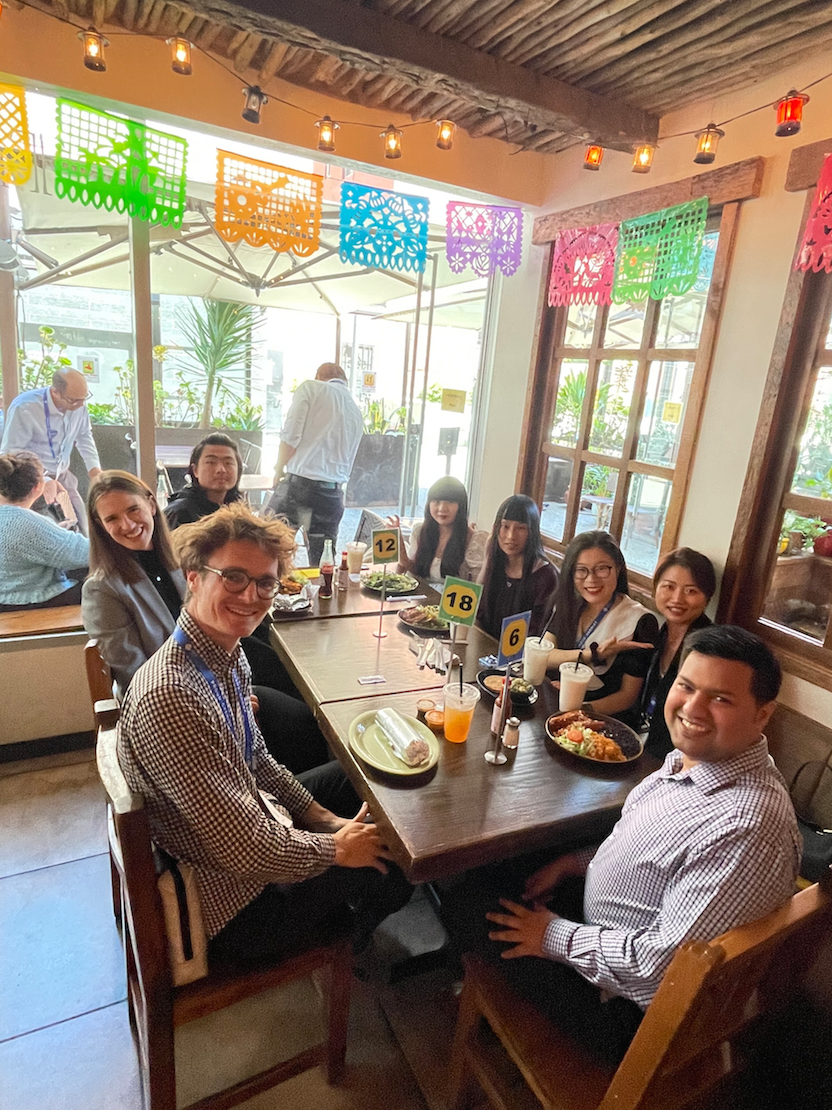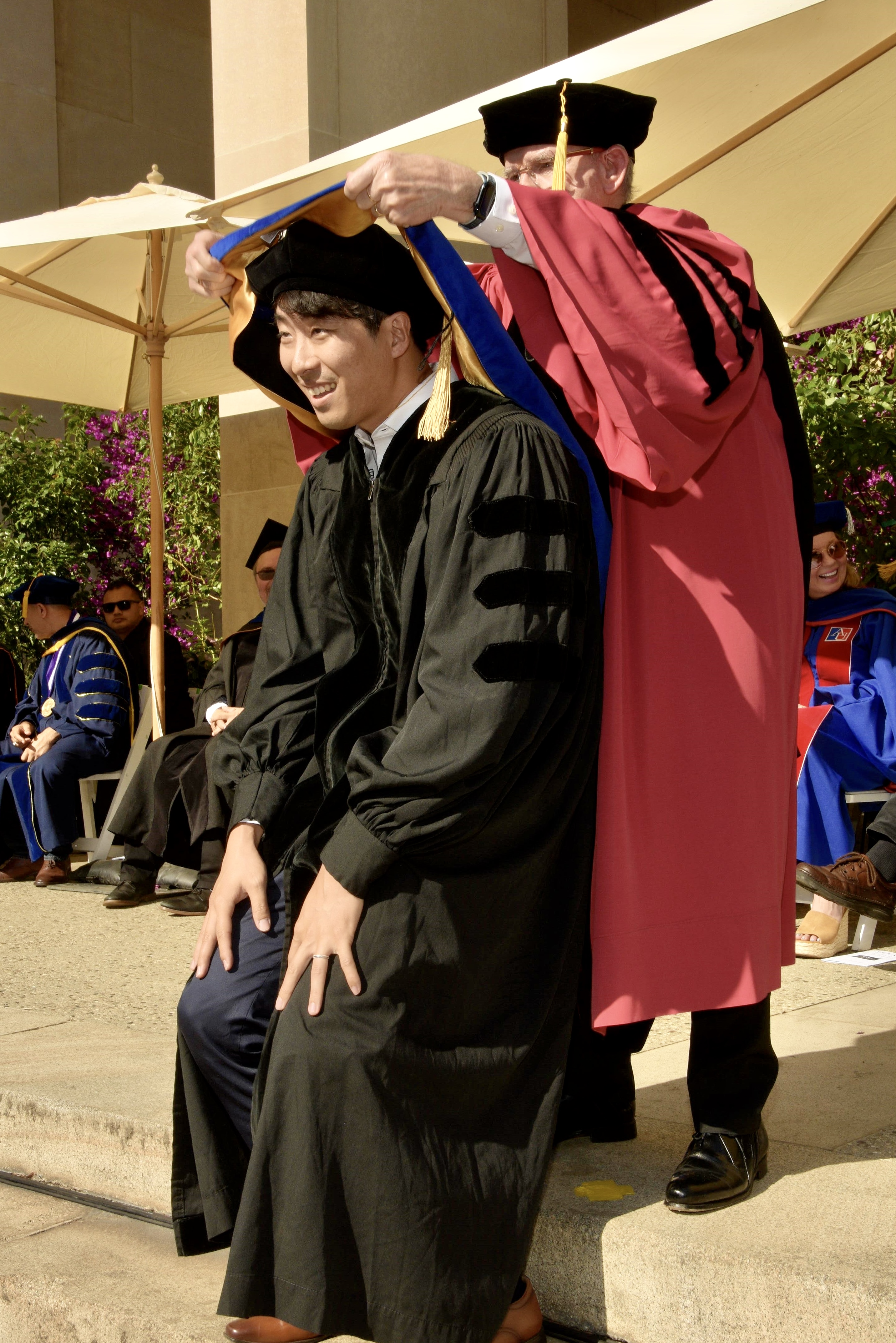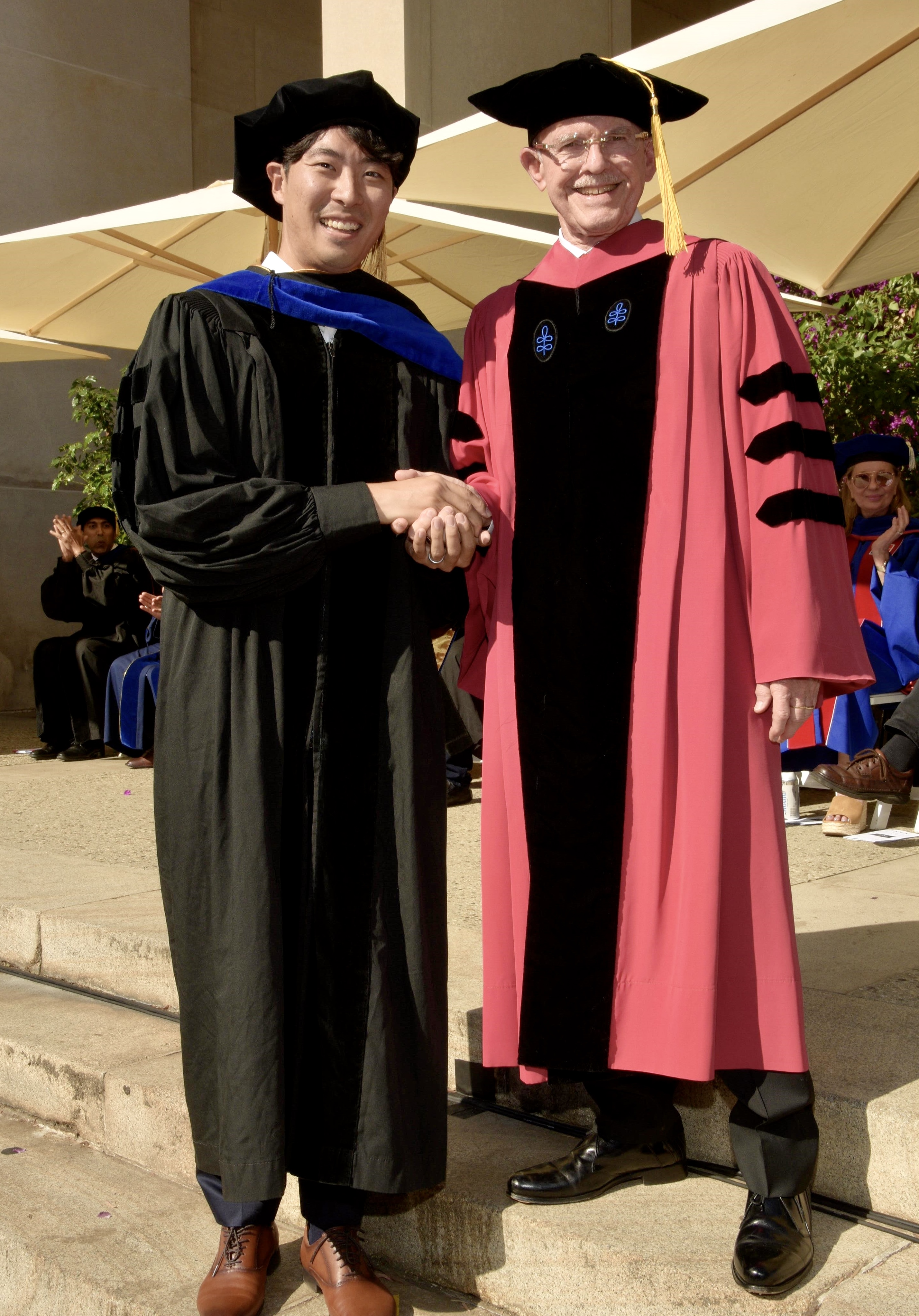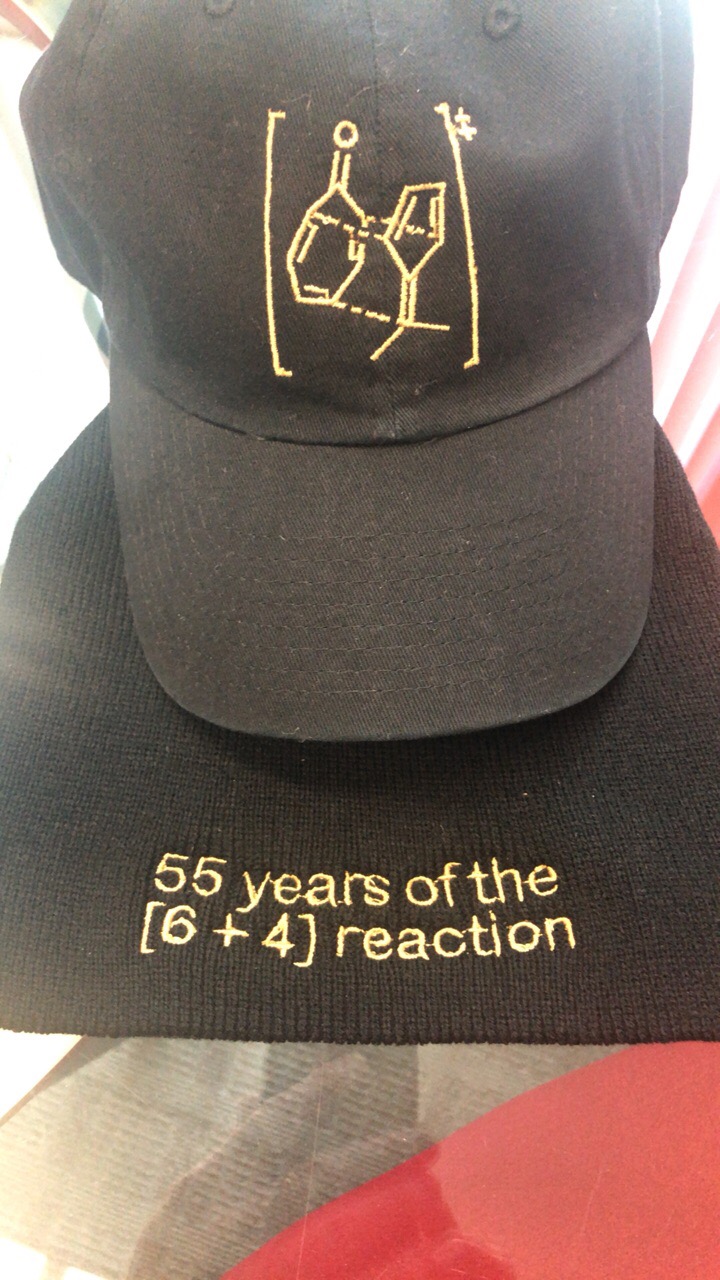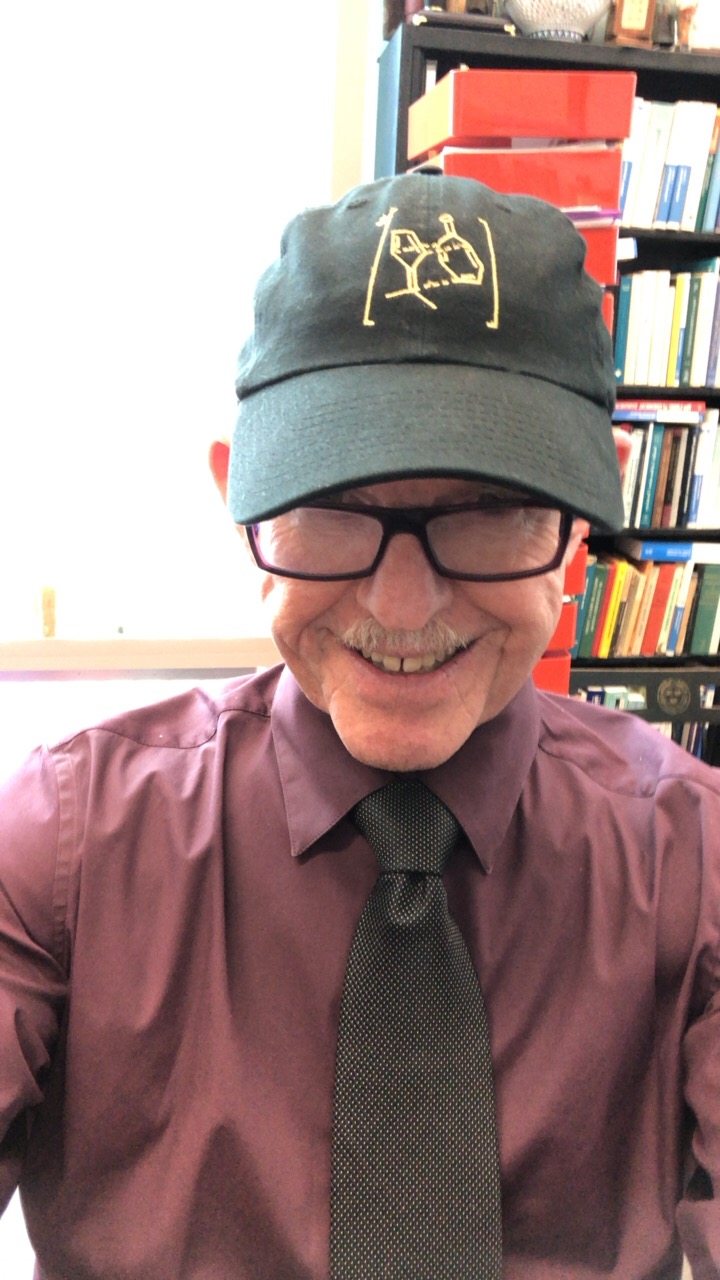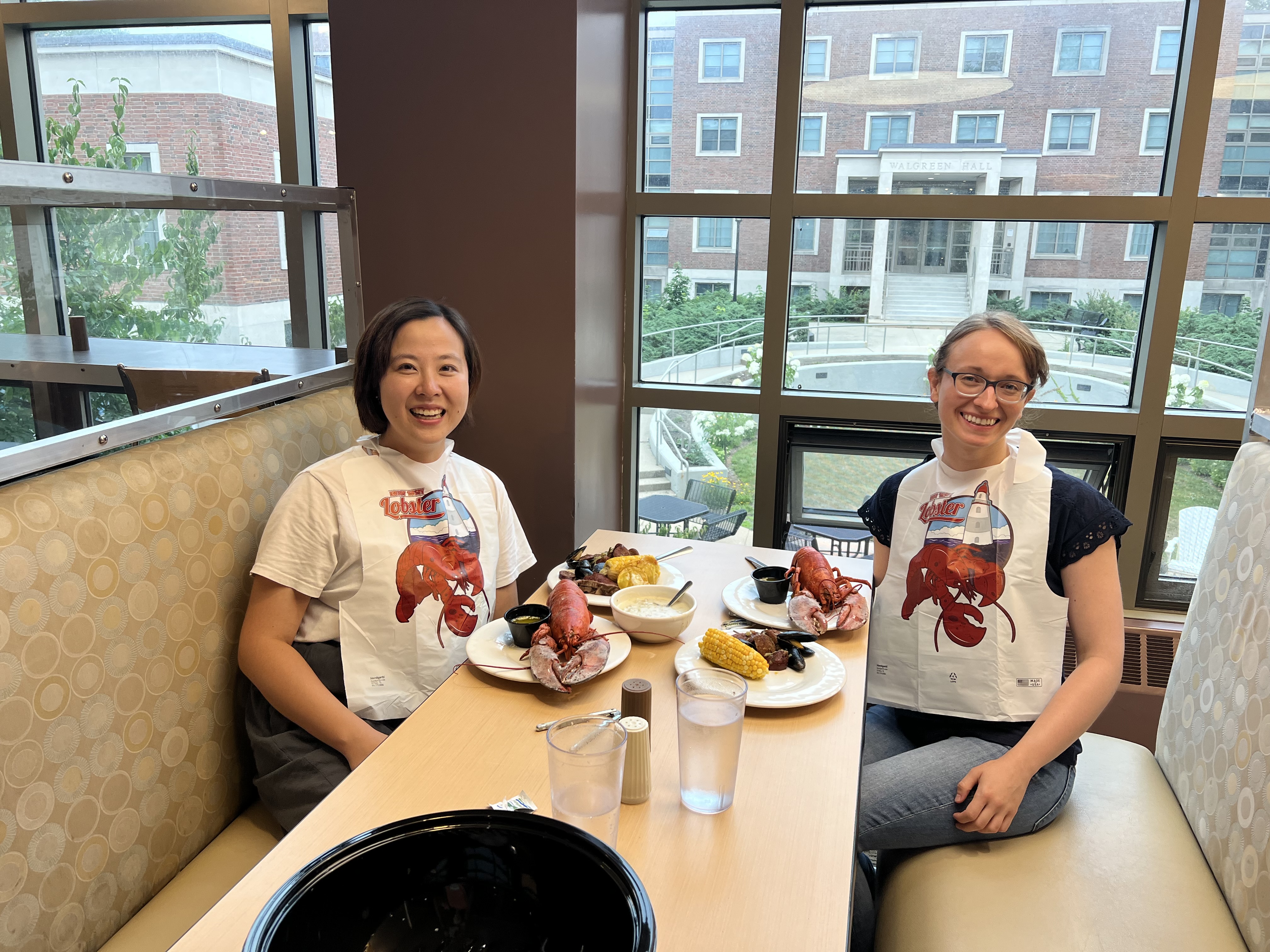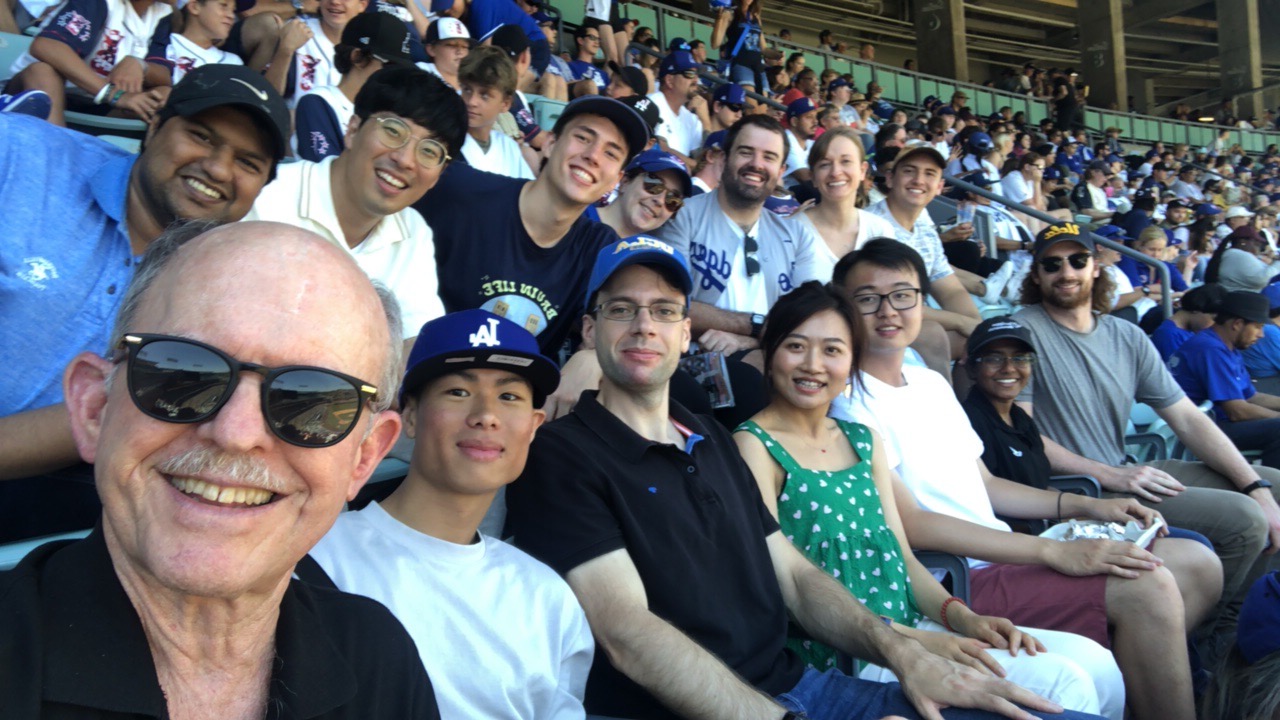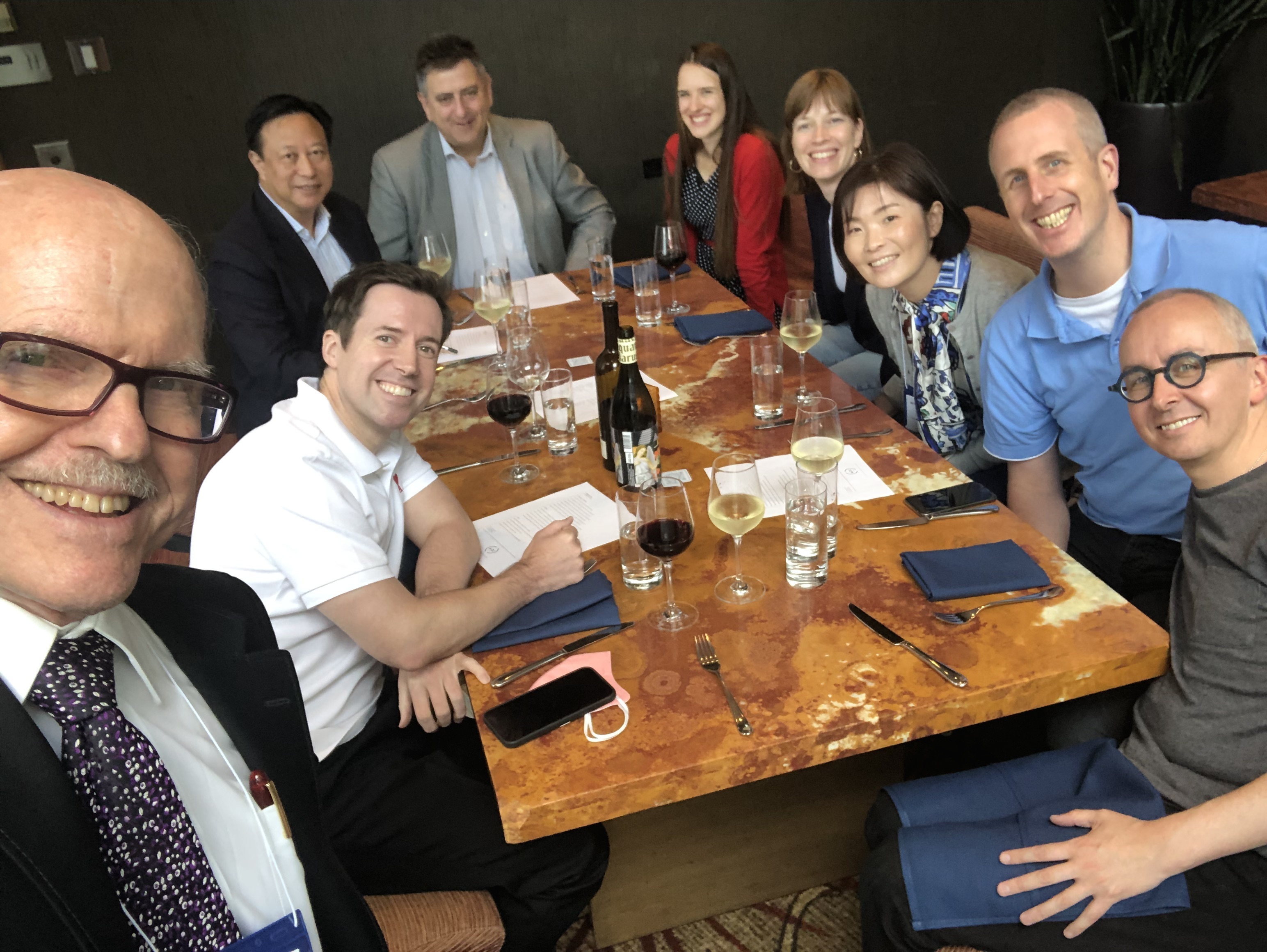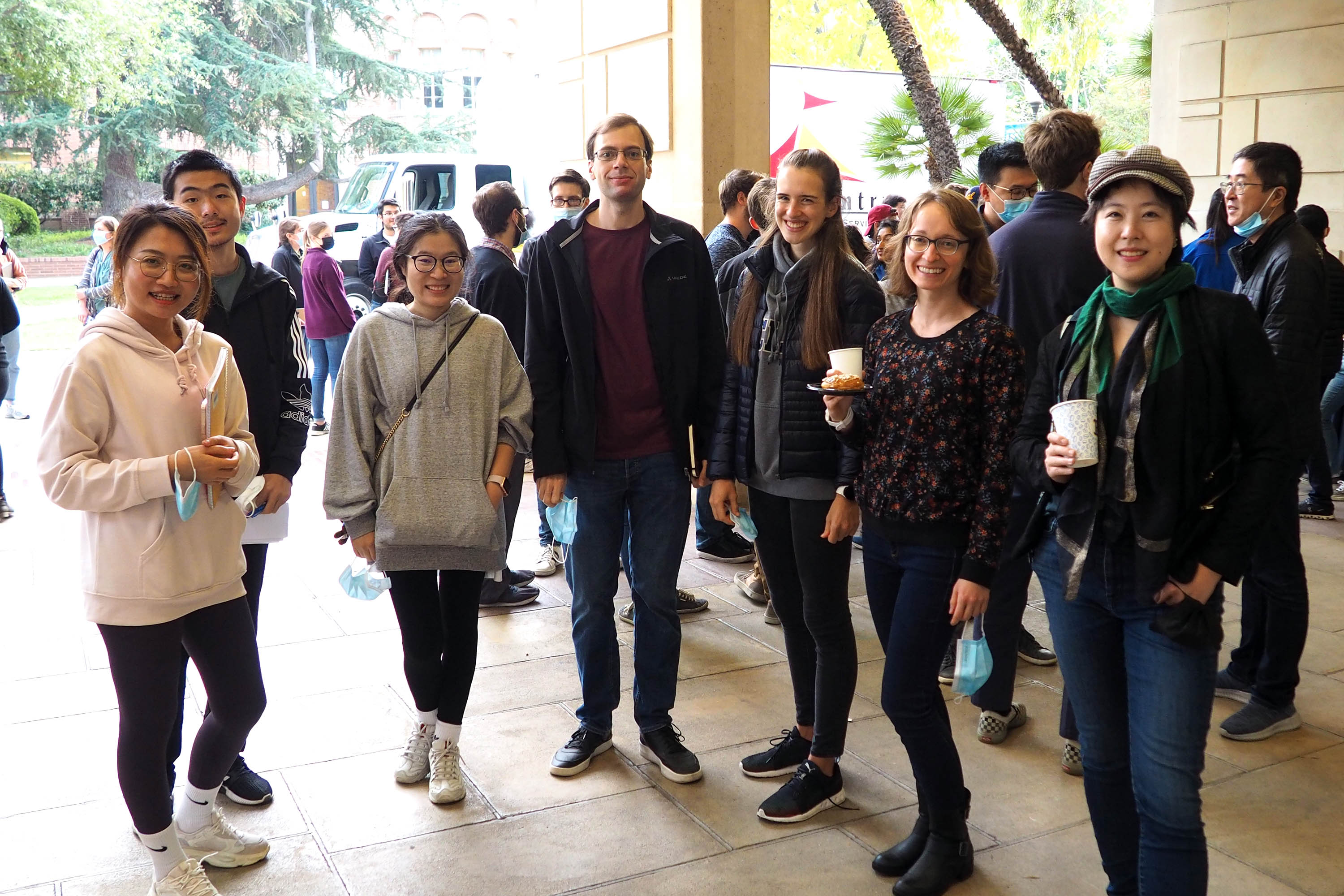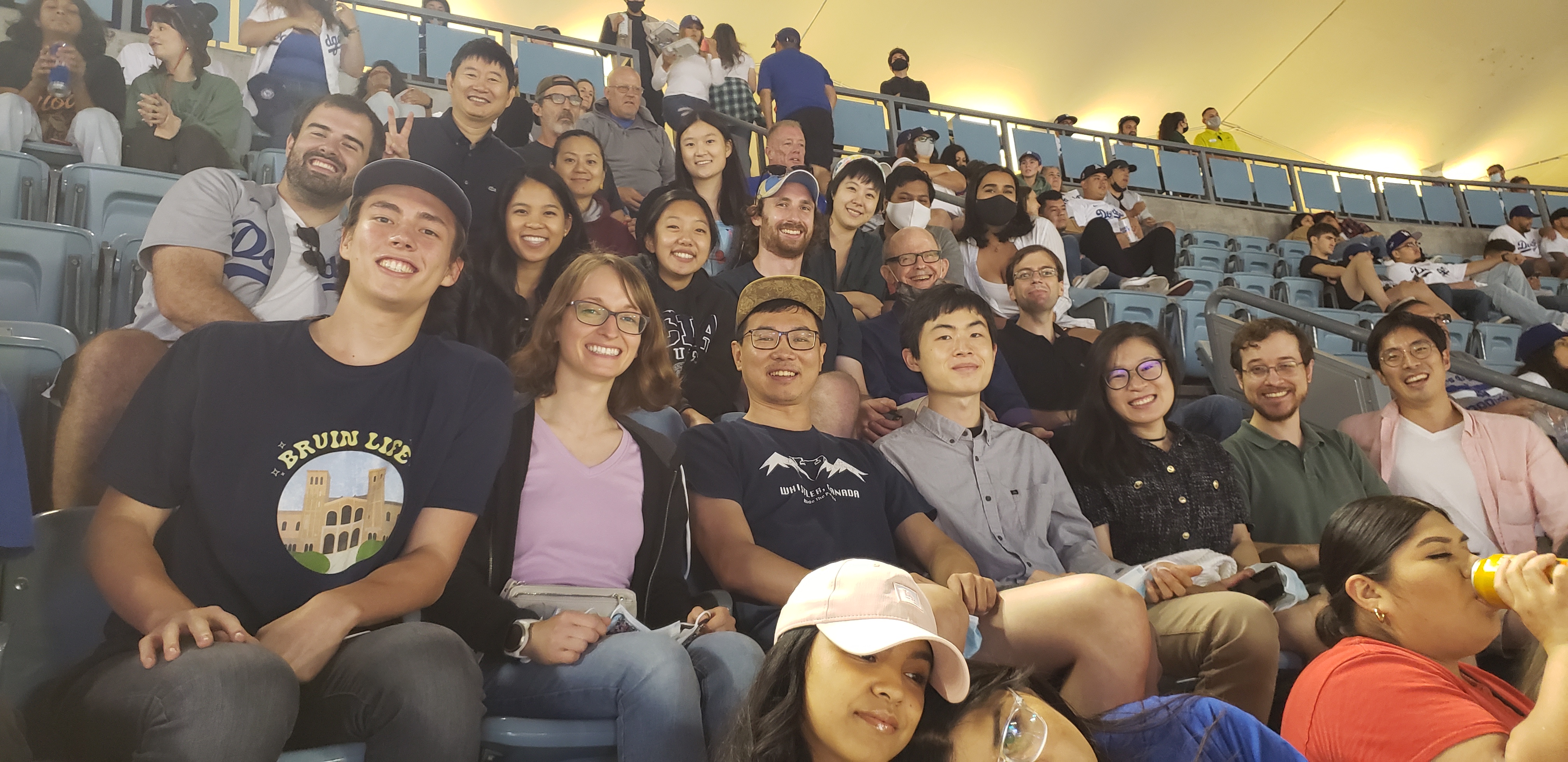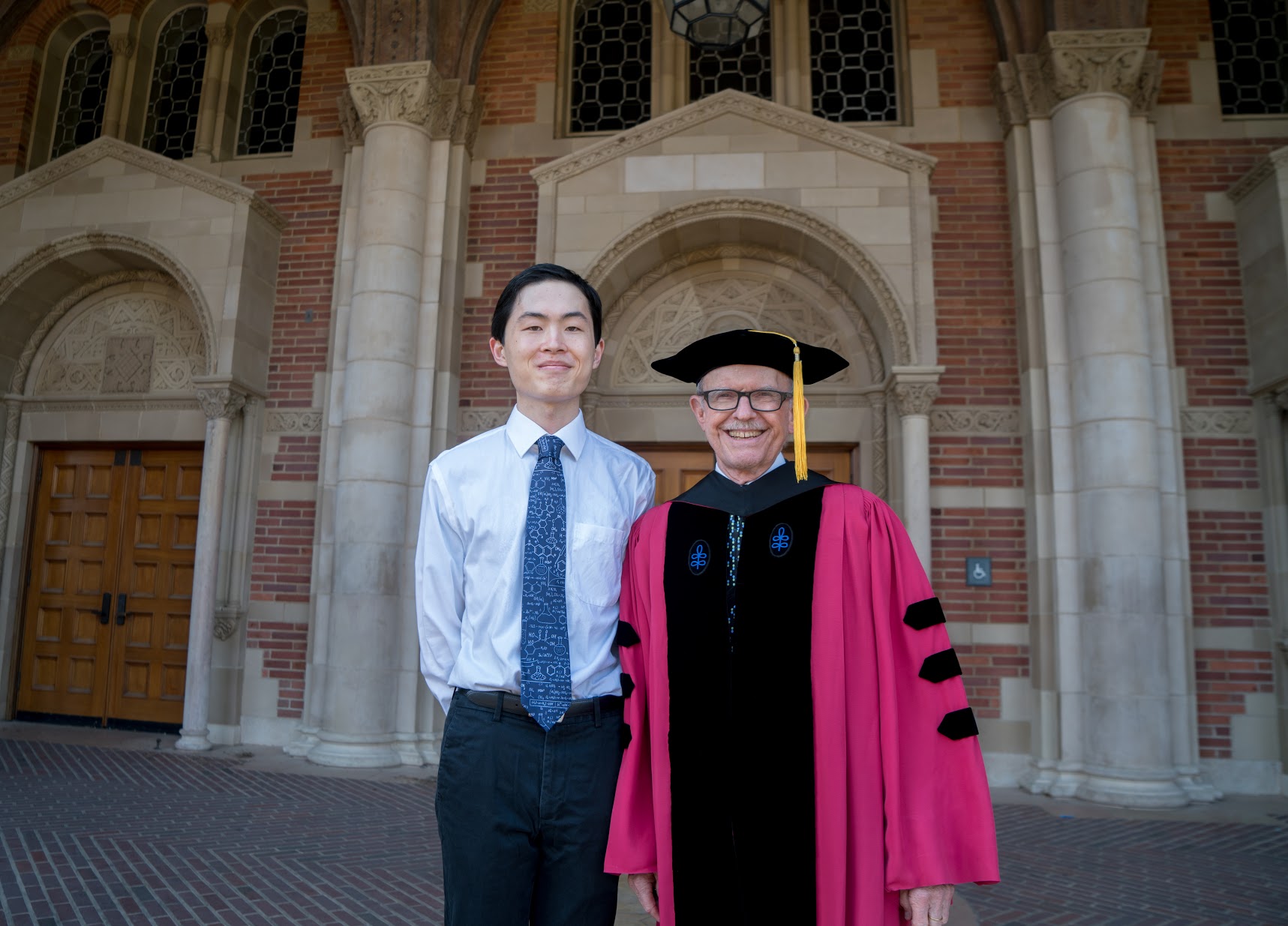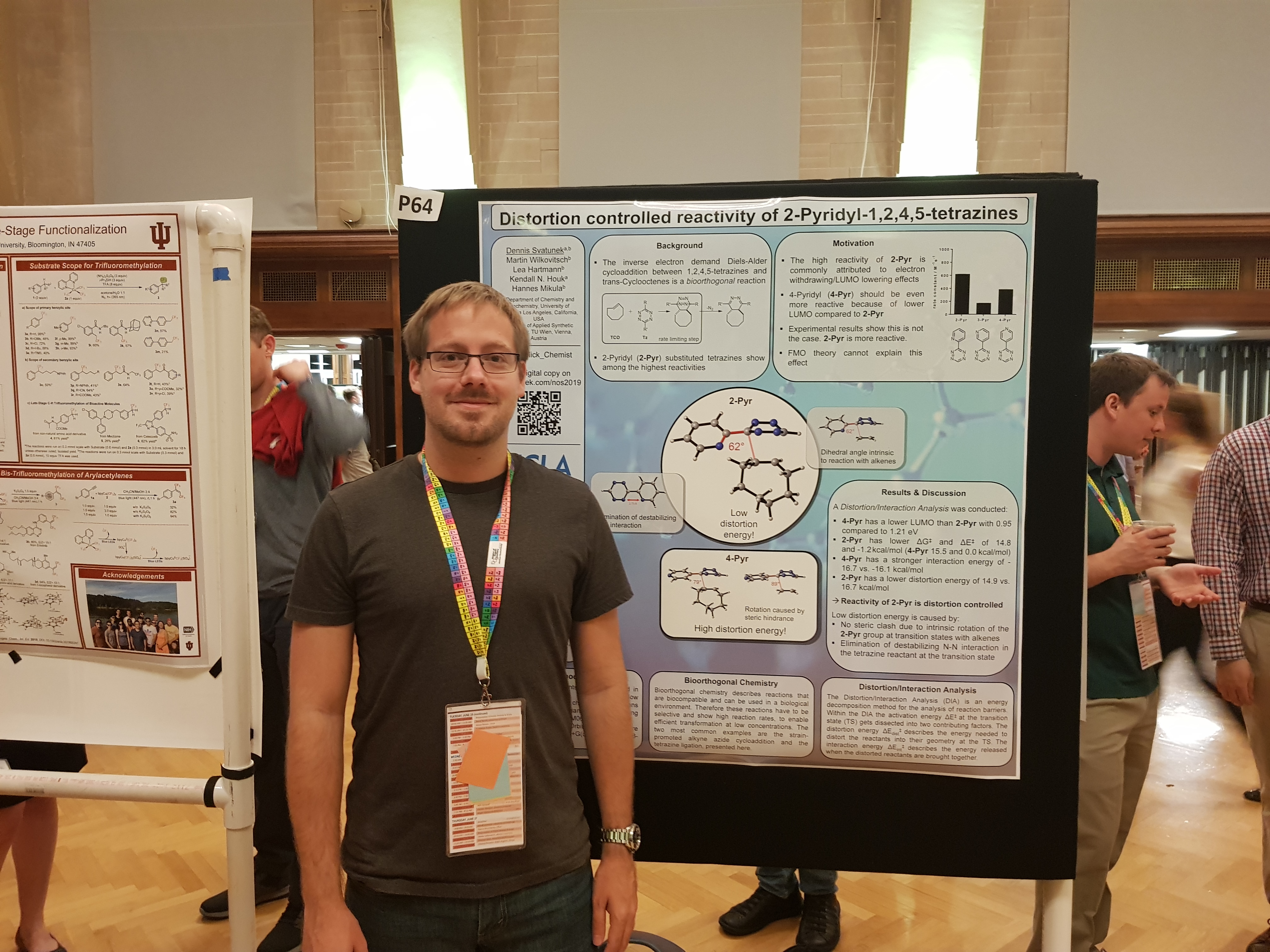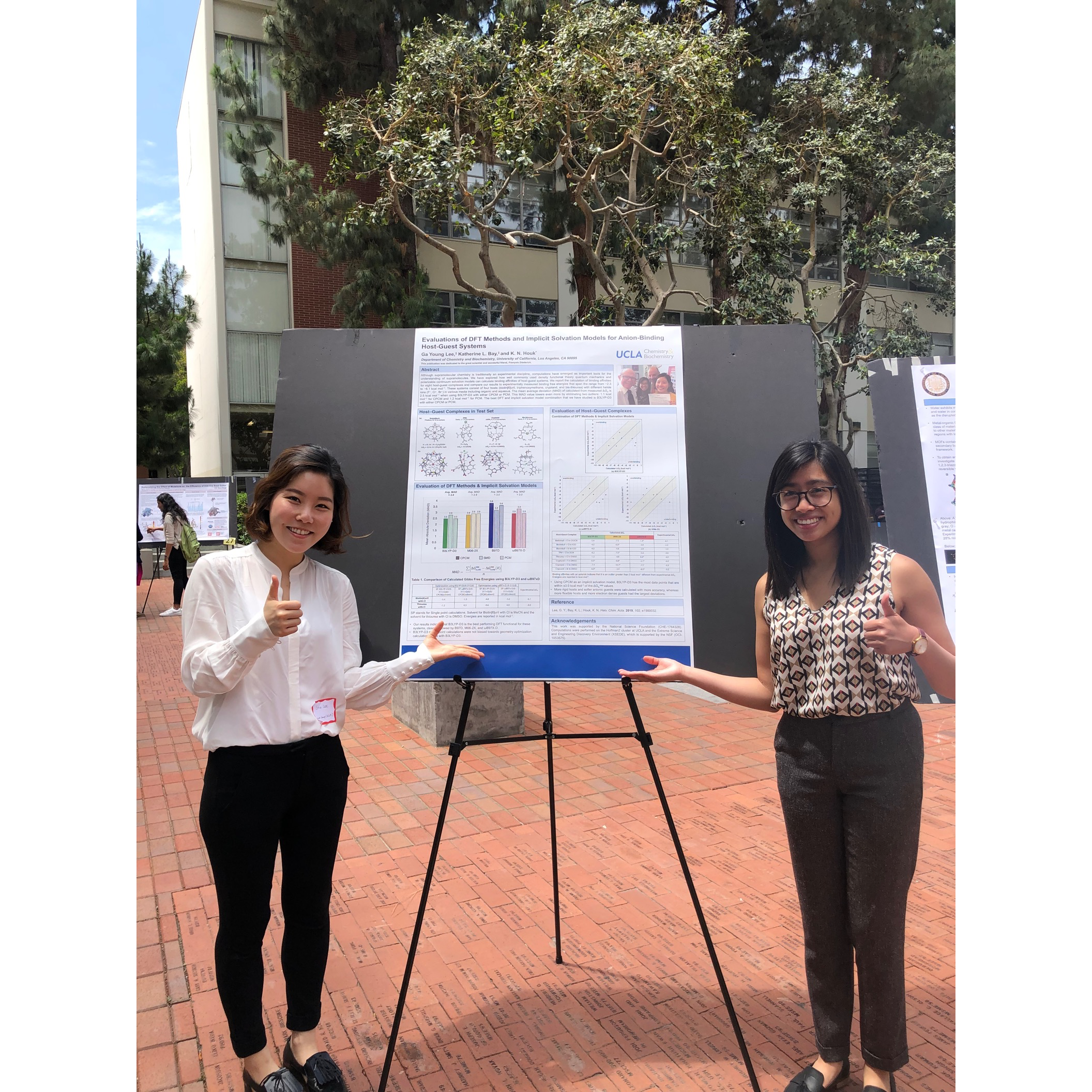|
Professor Houk hooding Woojin Lee, 2023 Ph.D.
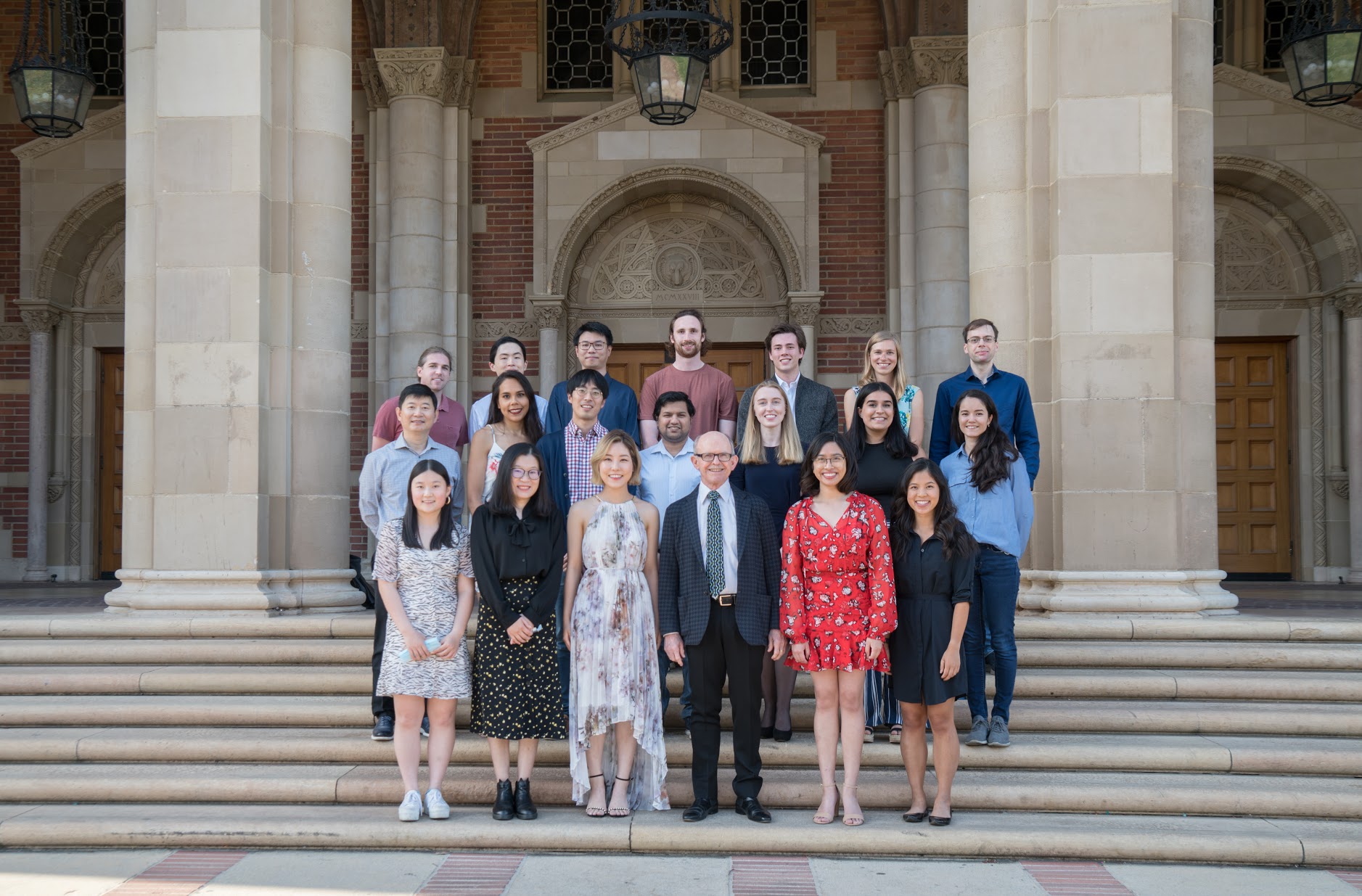
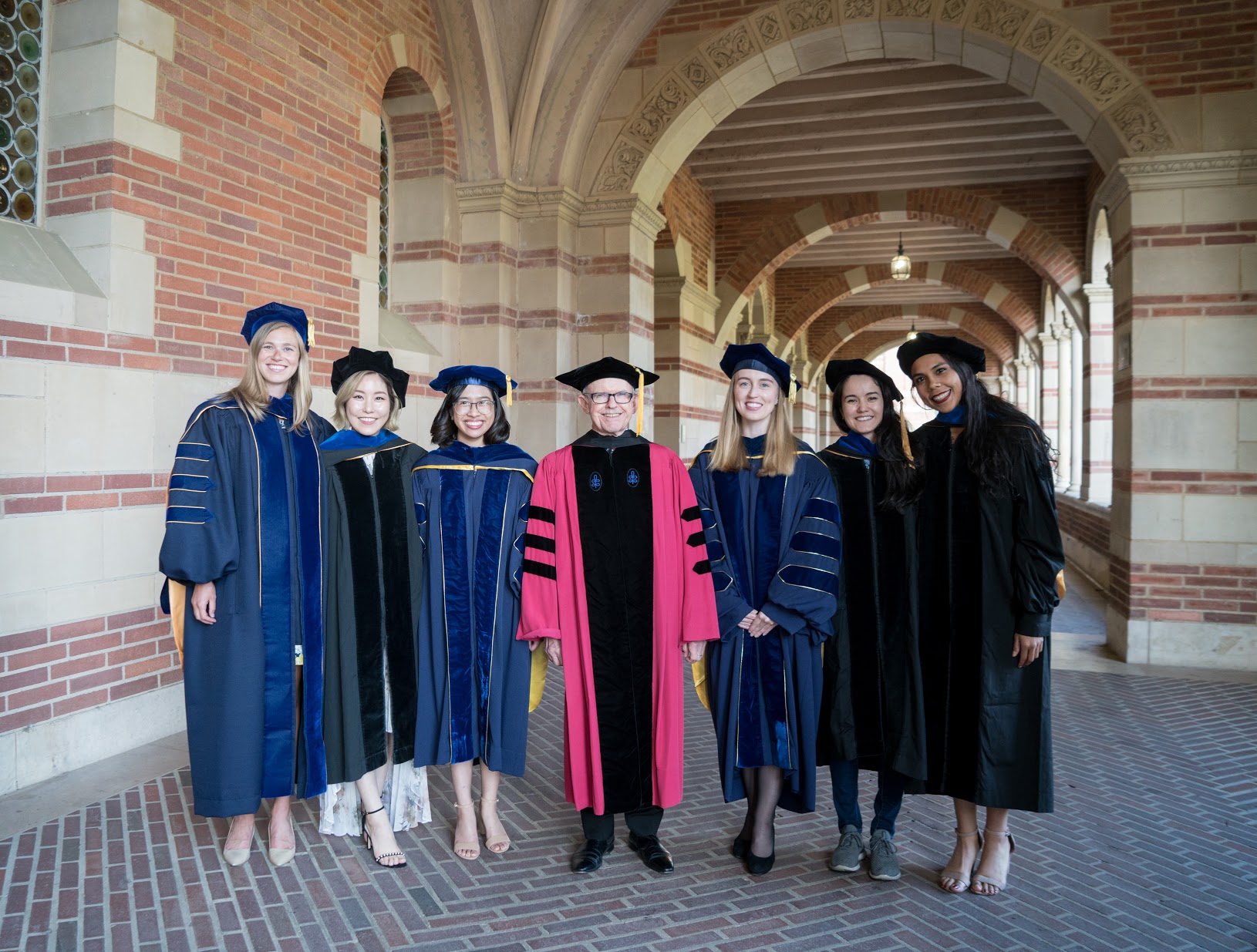
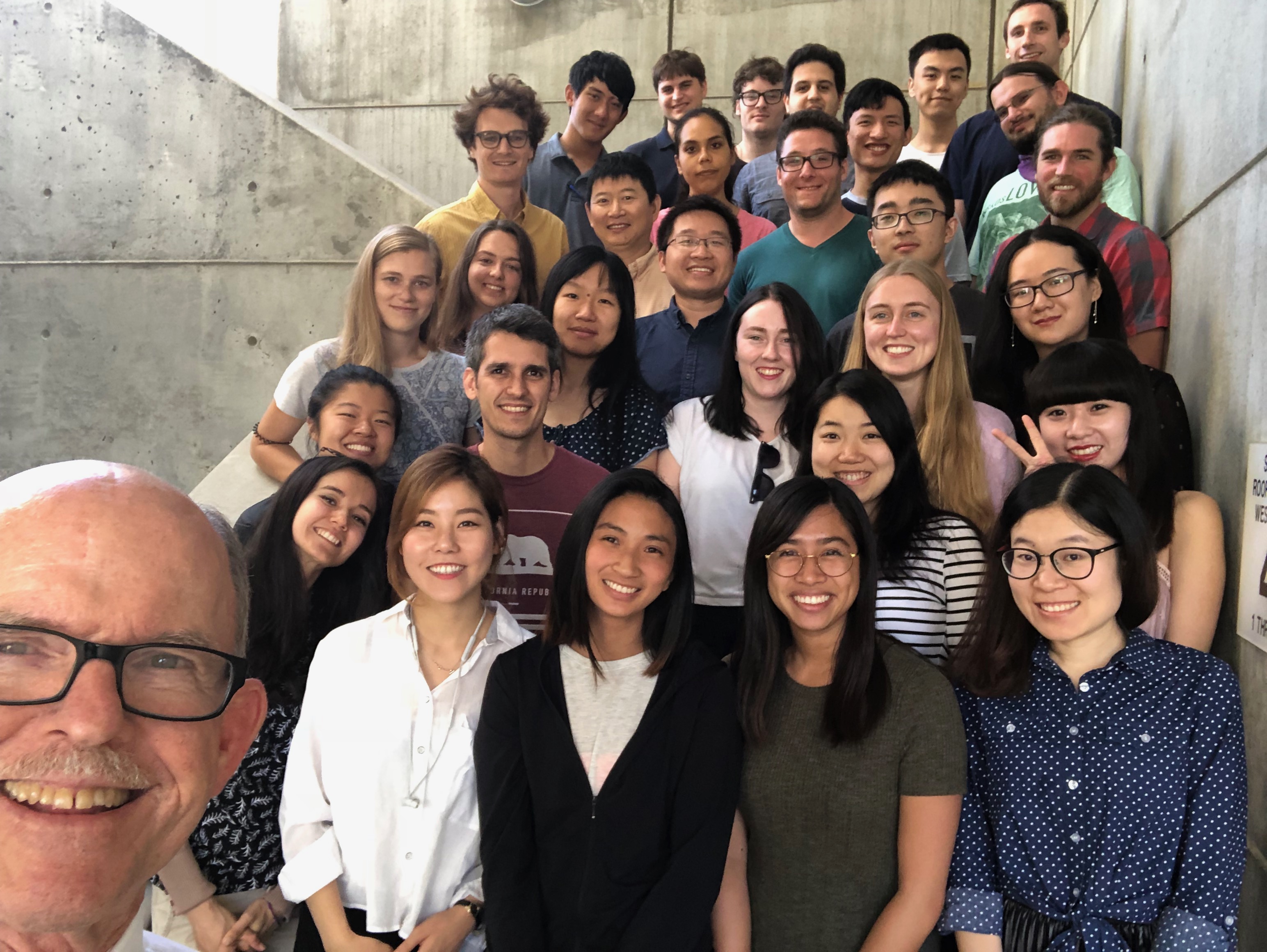
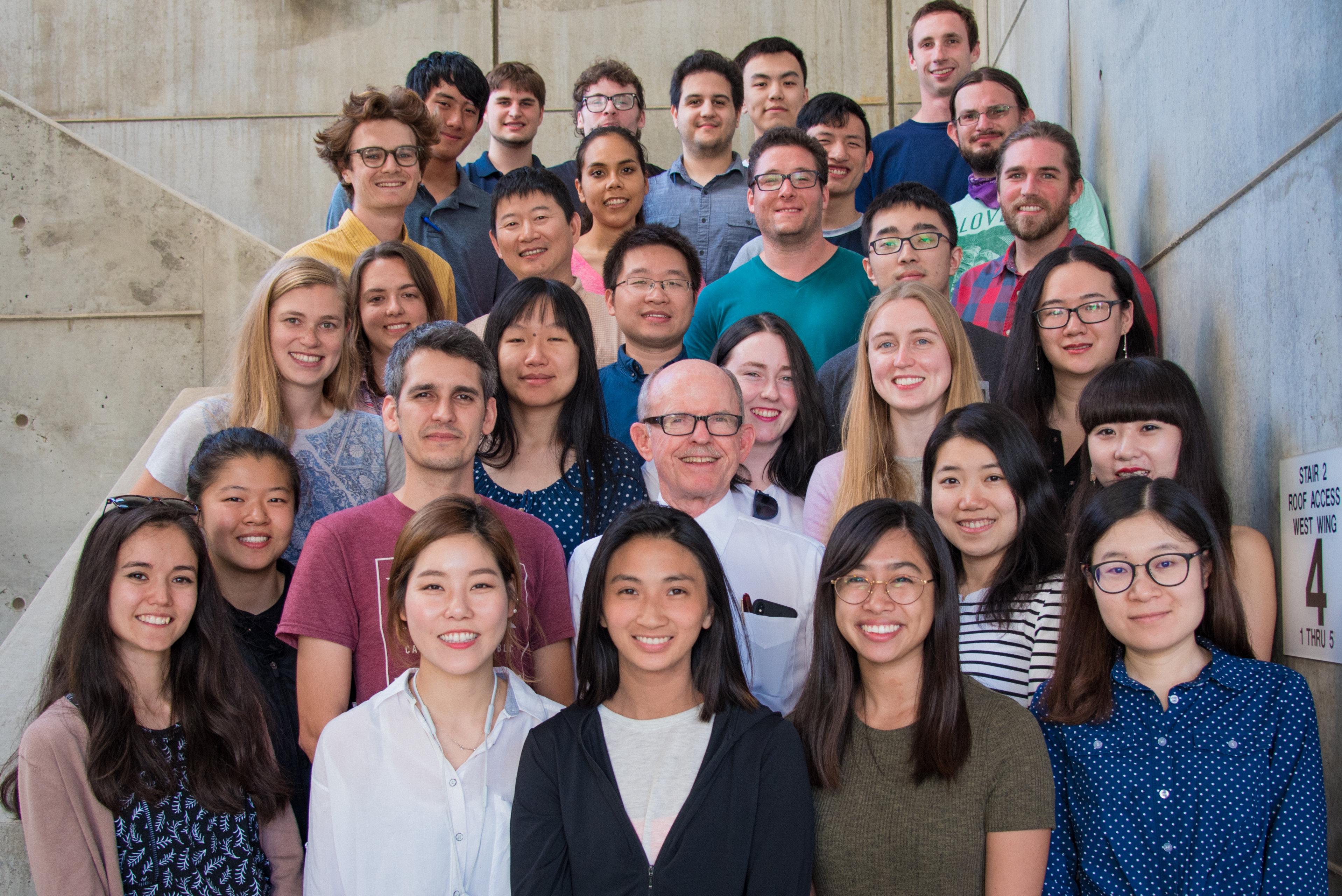
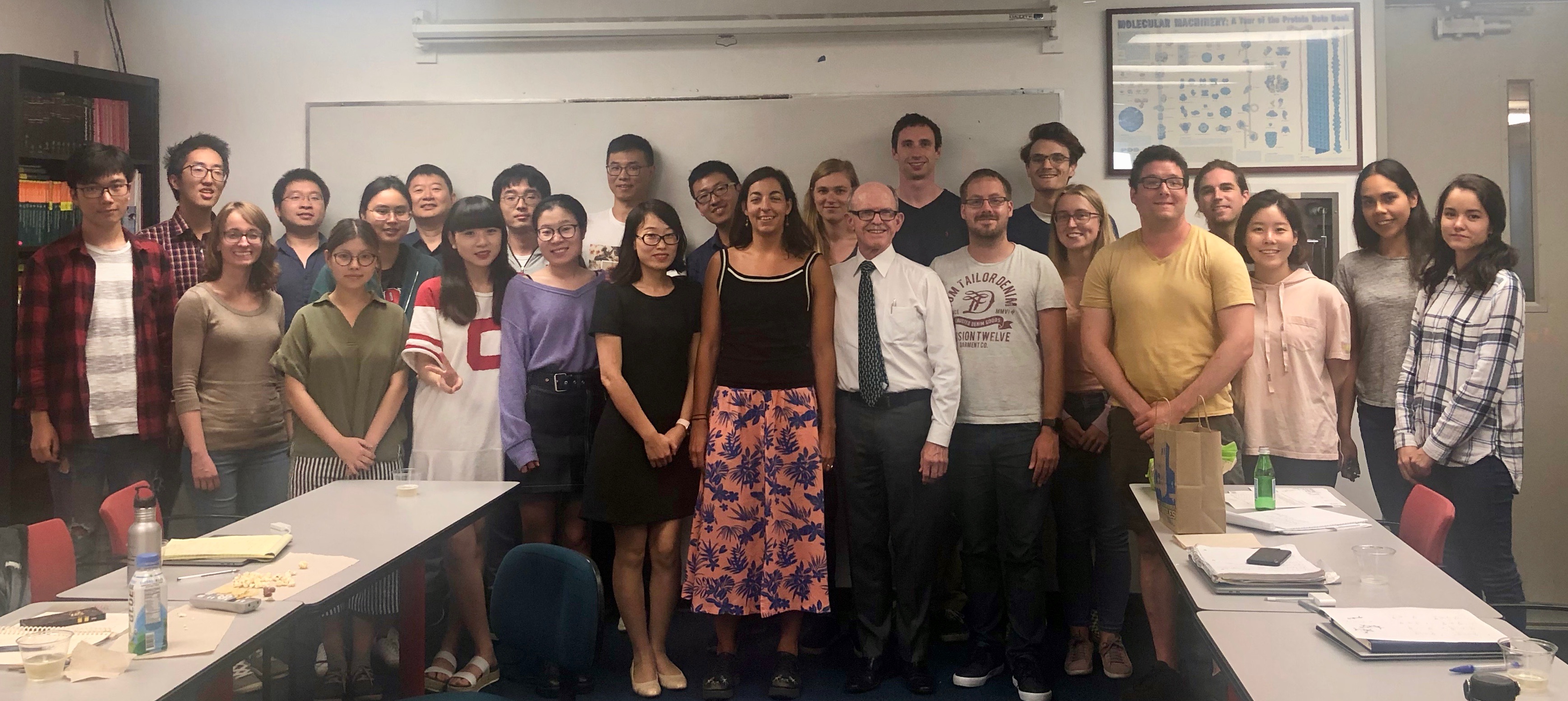

The Houk Group solves problems in organic and bio-organic chemistry using theoretical and computational methods and programs. Theoretical predictions and designs of new reactions, reagents, and catalysts are tested experimentally in the Houk lab or with collaborators. The group is currently heavily involved in the study of dynamics of chemical reactions and the motions and properties of nanomachines.
The Houk Group conducts research in the following areas:
• Enzyme mechanisms and selectivities
• Prediction of novel catalytic enzymes
• Pericyclases: enzymes that catalyze pericyclic reactions
• Dynamics and properties of nanomachines
• Mechanisms and design of stereoselective organic reactions and catalysts
• Pericyclic reaction mechanisms, rates, and synthetic applications
• Bioorthogonal cycloadditions
• Ambimodal and polypericyclic transition states
• Molecular dynamics of chemical reactions
• Organometallic reaction mechanisms and CH functionalization
• Organic materials, molecular devices, and host-guest chemistry
Professor Houk’s position in the The Academic Tree for Chemistry.
|


